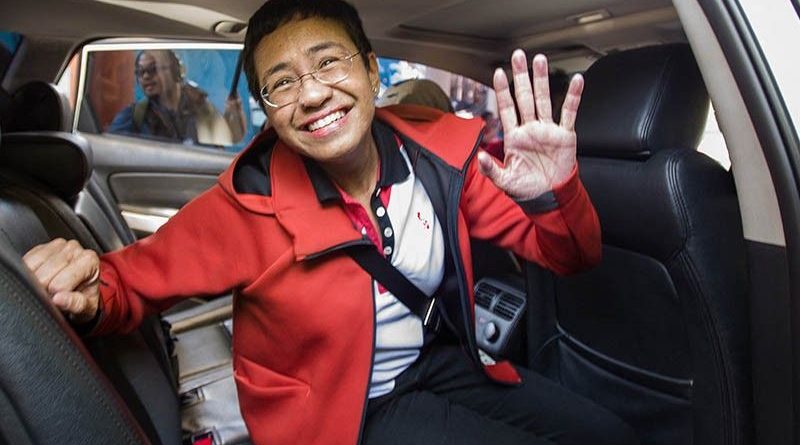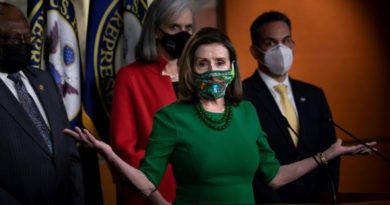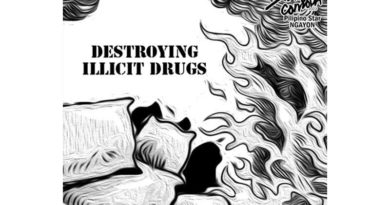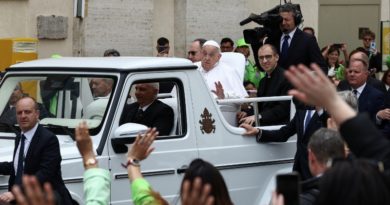OP ED EDITORIAL-OPINION: Hold the line – Sunstar
Maria Ressa of Rappler – Sun, 12 December 2021, 7:59 pm
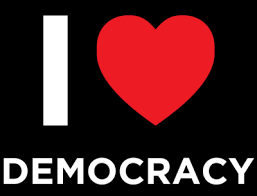
RESISTANCE to tyranny rests on daily acts of commitment to personal integrity and the public welfare. History, particularly of this country, attests to what happens when individuals link to create a collective chain to expose and oppose—or abet through silence and consent—the abuse of power to oppress the vulnerable for the aggrandizement of the privileged.
In this human chain, journalists—digital storytellers of the modern tribe—are more important than ever to speak for the voiceless, to question and demand accountability from power, and to raise the questions that break through people’s complacency, denial, and apathy.
Maria Ressa of Rappler, who received the Nobel Peace Prize for 2021 with fellow journalist Dmitry Muratov, paid tribute in her Nobel Lecture on Dec. 10 to the human cost of holding the line and staying committed to bringing the truth and holding power accountable.
In her Nobel Lecture, accessible at https://www.nobelprize.org/prizes/peace/2021/ressa/lecture, Ressa honored other voices in democracy: lawyers, human rights advocates, and public servants like Sen. Leila de Lima, jailed and persecuted for her crusade to criticize and investigate the Duterte Administration for the violations of the rights of victims in its War on Drugs.
.
Ressa highlighted the deeds and sacrifices of nameless “strangers,” who, in her words, “help (journalists and other crusaders)—despite the danger… because they want to, with little expectation of anything in return.”
This is heroism reduced in scale but immense in its impact to reinforce and sustain belief that our world should continue to keep faith with the Law and democratic principles and not lose heart or direction because of the dominance of dictators, fake news purveyors, and the shadow forces weaponizing communication and technology to punish dissent and debate.
In her Nobel Lecture, Ressa pointed out that in her 35 years of covering war zones and conflict areas, she is also an eye witness of “so much good, when people who have nothing offer you what they have.”
Citizens rarely get recognized for their contributions to democracy. They are not just witnesses and sources of information for the government, journalists, human rights groups, lawyers, and other stakeholders tracking the daily tests of democracy in society.
Citizens also share the stake by leading the frontlines in defending press freedom and demanding accountability in the exercise of powers by journalists and other communicators.
.
Ressa pointed out in her Nobel Lecture that citizens are caught in between the continuing conflicts pitting two dominant forces in the information ecosystem of the 21st century: journalists as the “old gatekeepers” and technology with its “god-like power” to infect citizens with “a virus of lies.”
Surveying the information ecosystem, one can readily observe the threatened existence and questionable prospects of legacy media, a telling term for what used to be the all-powerful tri-media—print, radio, and television—shaping and controlling the flow of communication, the production of culture, and the formation of consciousness.
In keeping the gates open and close for information, persuasion, and other forms of communication, journalists are not perfect as guardians and stewards. The corporate model of legacy media ownership puts a publishing company and a broadcast station vulnerable to the eccentricities of media owners and the blind, socially challenged drive for profit-seeking.
Yet, legacy journalism also institutionalized standards and ethics for ferreting out the truth, verifying information, and using the public welfare as the guidepost for publishing and circulating content. These are invaluable lessons that citizens need to imbibe and practice if they are to replace the “old gatekeepers” in guarding against the erosion of democracy in the continuing onslaught from revisionists of history, authoritarian rulers, and sham storytellers.

